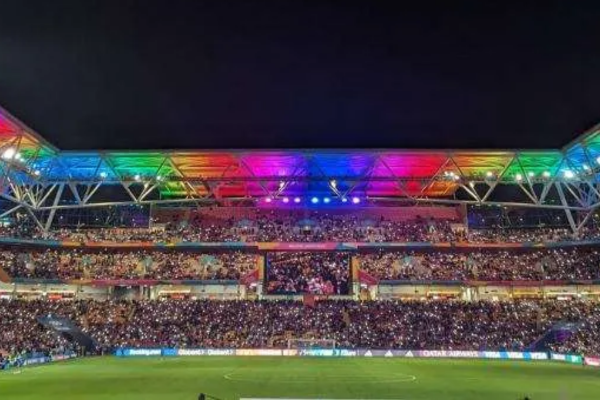As always, the Women’s World Cup is queer AF. Women’s sports has always been full of queer women–whether we were out or not–but every year more and more out players take the field in women’s soccer. This World Cup is a celebration of queer visibility and we’re here for it. Here’s what you need to know for 2023.
A record number of out athletes are playing and coaching
With so many players involved on such large teams, this might just be the largest number of out queer players in any sporting event in history. Outsports.com and Autostraddle each count around 100 (!!!) out players and a few coaches as well. The LGBTQ+ soccer pros—lesbian, bi, queer, nonbinary, and other identities—hail from over 30 countries across six continents. They also include couples between them like Team USA’s Kristie Mewis and Team Australia’s Sam Kerr.
Over two thirds of the teams have an out player
Twenty-two of the 32 teams in the World Cup have at least one player out as LGBTQ+ and at least eight of them have a team captain who is LGBTQ+. Australia has the queerest team with over 10 out players–that’s over 40 percent of the team!
Quinn is the first nonbinary player to compete in the World Cup
Canada’s Quinn was the first transgender person to win a gold medal at the Olympics in 2021 and now they’re becoming the first transgender person to compete in a FIFA World Cup. They’ve been out as transgender and nonbinary since 2020. “It’s so important for young soccer players to have role models in sport,” they told Streets of Toronto. “Seeing the women’s national team and fortunately being able to interact with some of them was hugely important for me in understanding that there was a pathway for me.”
Out players scored 4 out of 10 goals in one day
On Wednesday, July 26, Ireland captain Katie McCabe scored her team’s only goal in a 2-1 loss to Canada and Spain’s Teresa Abeillera and Alba Redondo delivered three of the team’s five goals in a 5-0 shutout against Zambia. Team LGBTQ+ is making themself known in the first week of the tournament!
FIFA banned rainbow armbands but players wore rainbows in other ways
FIFA, the organization that runs the World Cup, announced they would not allow players to wear rainbow armbands, continuing their controversial policy from the men’s World Cup. Despite this, players have found other ways to wear rainbows, including New Zealand captain Ali Riley sporting fingernails painted in rainbow on one hand trans pride colors on the other and South Africa’s Thembi Kgatlana wearing rainbow-dyed hair.
This will be Megan Rapinoe’s and Marta’s last World Cup
Team USA’s Megan Rapinoe, 37, and Brazil’s Marta, 38, both announced their upcoming retirements ahead of the 2023 World Cup. Both are absolute soccer legends that will leave the landscape of the sport changed without their presence. Rapinoe has been an advocate for equal pay for the women’s team in the U.S. and while she may retire from the field we’re excited to see what she continues to off the field after this part of her career.


